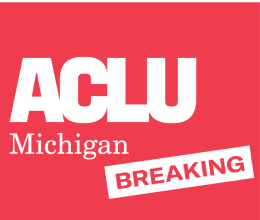“Substantial staffing reductions.”
Reduced support service necessary to “meet required obligations only.”
Elimination of elective classes “except to the amount necessary for students to meet graduation requirements.”
Despite these and other drastic cuts in a district that’s been under the control of a state-appointed emergency manager since 2012, a report today from Michigan Radio’s Lindsey Smith reports that “Highland Park schools face a new budget shortfall.”
This was fairly predictable given that the state’s turnaround strategy for troubled school districts focuses only on deficit elimination and changing a district’s governance structure rather than ensuring high-quality intervention.
Because of that, students are fleeing the district in droves. Parents want to send their children to schools that provide students with a first-class education, and that’s just not happening in Highland Park – not even close. This is a district whose 2012 test scores showed that nearly two-thirds of fourth-grade students and three-quarters of its seventh-grade students are not reading proficient.
Highland Park is the second school district that Governor Rick Snyder has placed in the control of a for-profit charter company. The first involved the city of Muskegon Heights and Mosaica Education, whose contract was terminated just this month after two years of failure.
As expert Katie Ash wrote for Education Week at the time of Leona’s selection to run Highland Park’s schools: “Our concern is that, based on what we know about those operators ... it would appear as if [this] opportunity may be wasted ... because those are two of the lowest-performing charter operators in Michigan.”
The state has refused to place quality controls over the selection of charter school operators. Instead, total faith is placed in a free market strategy that has never been shown to deliver a strong public education to children in poor districts. Ironically, that strategy has backfired as children leave the district behind in choosing other districts.
Nor has the state yet to undertake the necessary measures to provide literacy intervention to children not reading at grade level in the fourth and seventh grades as required by Michigan law. And, in fact, the state is taking the position in our litigation, S.S. v. Highland Park, that it is not required to do anything and is not liable for any decisions it makes in districts it has placed under emergency control.
This is an empty strategy doomed to fail. The story of Highland Park’s children has become one not of innovative and robust interventions but rather of how the state instead is out-sourcing its constitutional and statutory duties in a climate that cannot provide a high quality, much less adequate, public education for them.
It is the story of the abandonment of children to an untested model of public education that relies on the lowest bidder rather than the most qualified. There is no win-win with this approach until, and unless, the state is willing to put the interests of children first.
Key News & Documents
Read more about our work to guarantee the Right to Read
By Kary Moss, Executive Director


